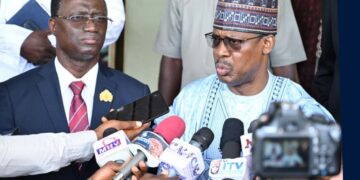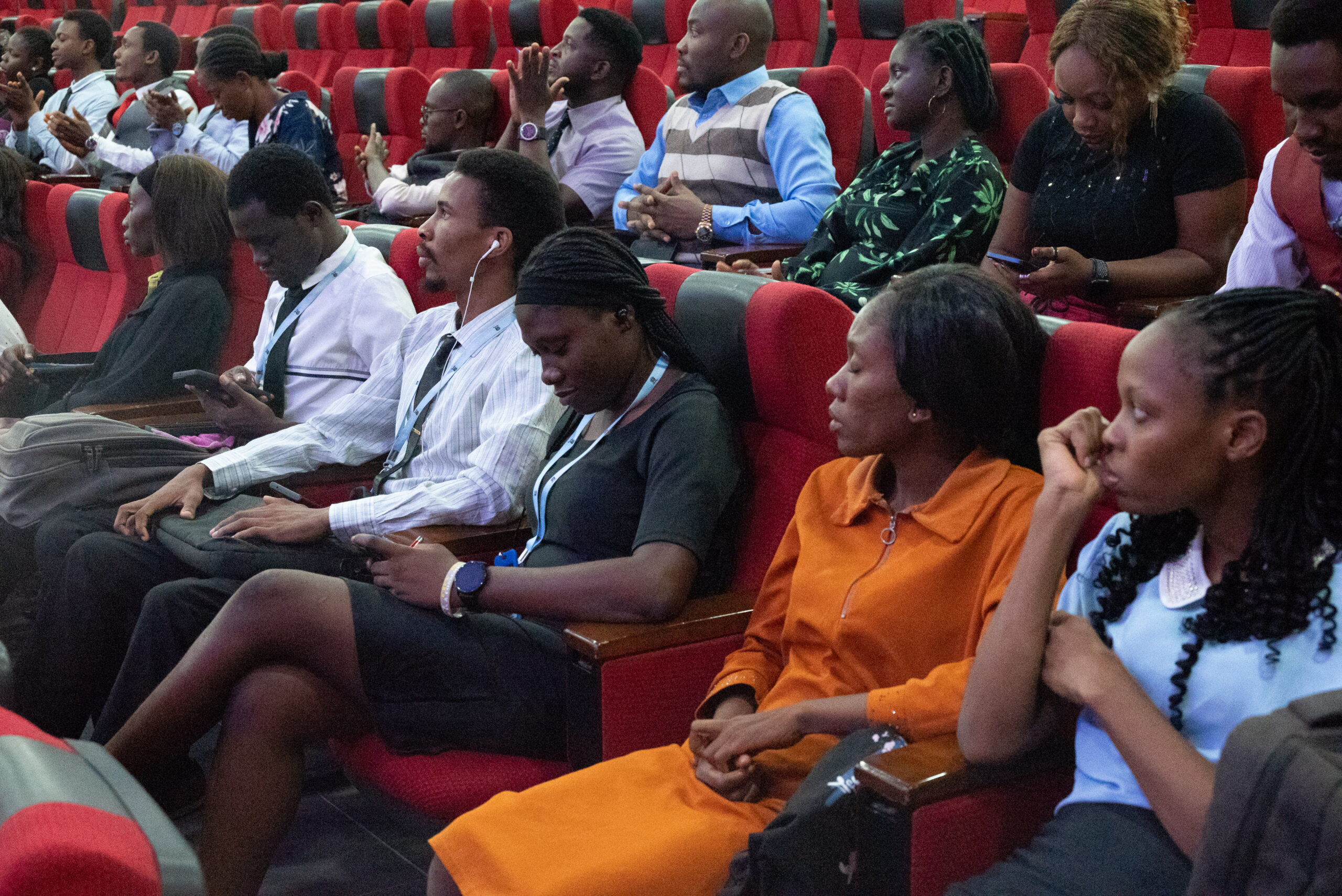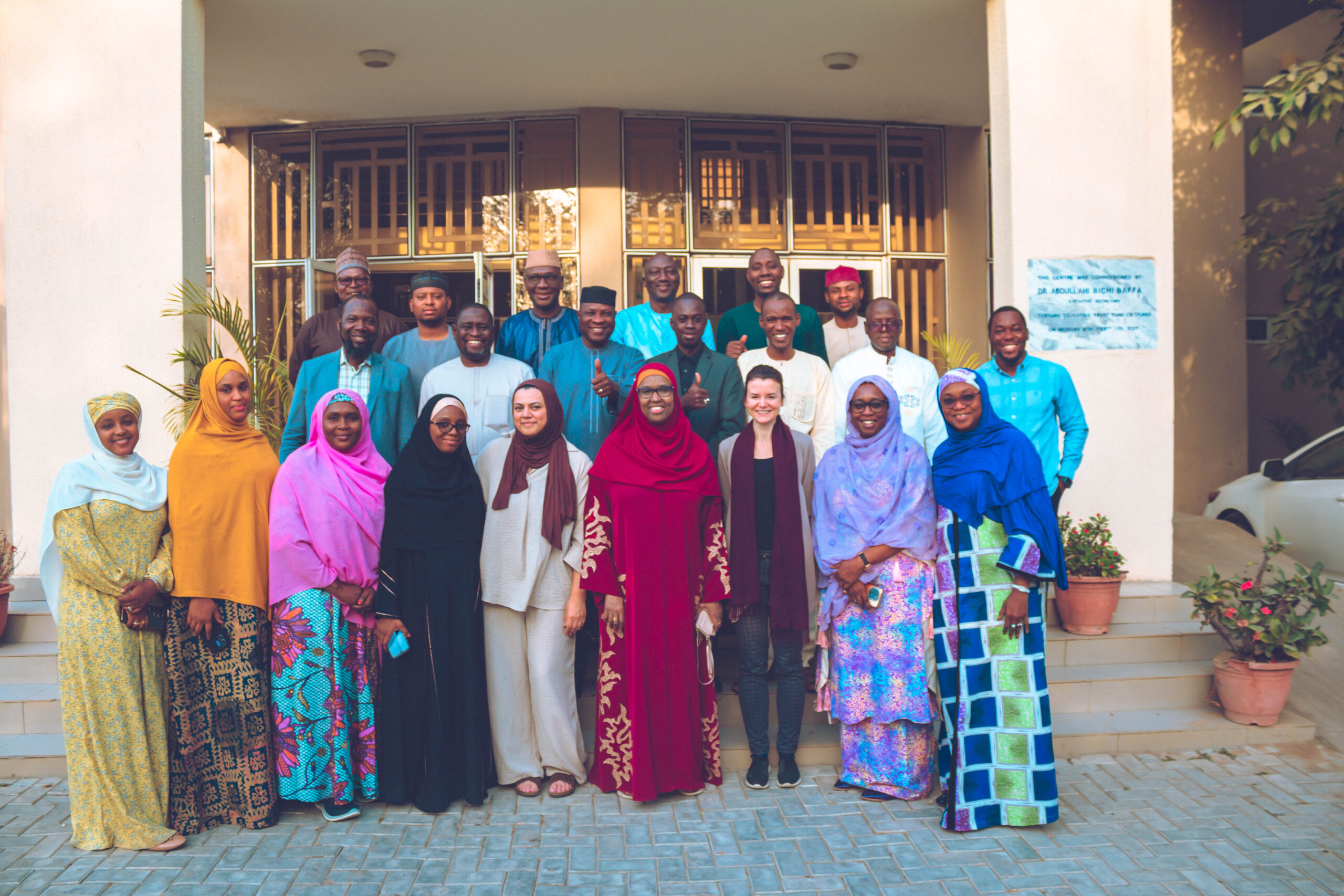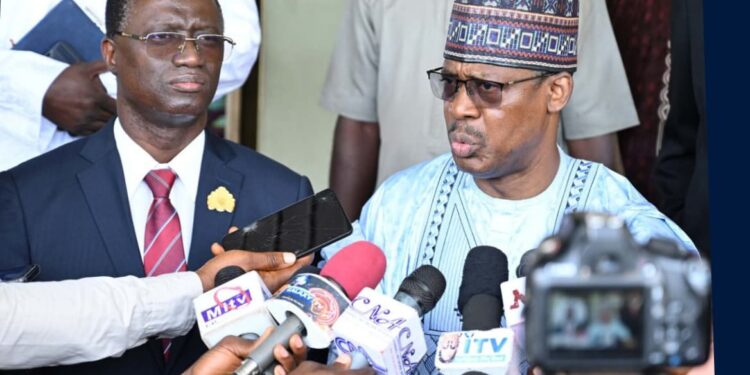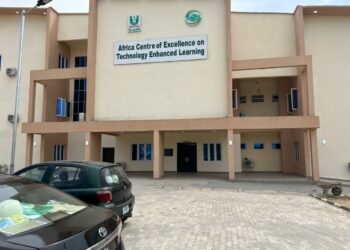By Yvonne Orekyeh
The Minister of Higher Education of The Gambia, Professor Pierre Gomez, has expressed confidence in Africa’s ability to address challenges on the continent. Professor Gomez asserted this during a courtesy visit to the Acting Executive Secretary of the National Universities Commission (NUC), Abuja, as part of efforts to concretise plans for the enrollment of Gambian students into programmes of the Africa Centres of Excellence for Development Impact (ACE Impact) and the Sustainable Procurement, Environmental, and Social Standards Enhancement (SPESSE) Projects.


Leading a delegation which also had the Gambian Ambassador to Nigeria, Mr Mohamadou Musa Njie, and the Permanent Secretary of the Gambian Ministry of Higher Education, Research, Science and Technology, Mr Yusupha Touray, Professor Gomez stated that The Gambia was embarking on a transformation of its education system. To do so, it was reaching out to countries in the sub-region, such as Nigeria, which have recorded significant success in developing their education sectors.
The Minister acknowledged the immense contributions of Nigeria to the growth of the education sector in The Gambia, adding that at some point, more than 50% of the teachers in The Gambia were Nigerians. He said Nigeria was also instrumental in setting up and developing the higher education system in The Gambia, adding that the country’s first Vice-Chancellor, Dean, and Registrar were Nigerians. A significant number of prominent Gambians were also graduates of Nigerian universities, such as Ms Fatou Bom Bensouda, a lawyer, one-time prosecutor of the International Criminal Court and presently, the Gambian High Commissioner to the United Kingdom.

He expressed appreciation that Nigeria had taken the lead in the development of the higher education sector in his country at a time when many other stakeholders did not see the viability of establishing a university in the small country on the western coast of Africa. Today, he said, thousands of Gambians have obtained some form of university education, thanks to the Nigerian intervention.
More recently, through the World Bank-supported ACE Impact Project, an initiative aimed at promoting regional specialisation among participating universities in areas that address specific common development challenges in sub-Saharan Africa, students from The Gambia were awarded scholarships to undergo postgraduate studies in select Nigerian universities. Upon successful completion of their programmes, the students would earn degrees in specialised fields in Science, Technology, Engineering and Mathematics (STEM), Agriculture, Health, or Education.
Out of 43 ACEs spread across East, West, Southern, and Central Africa, The Gambia had chosen to send its students to Nigeria, cognisant of the strong foundation of Nigerian universities. These students, he noted, were excelling in their chosen fields, boosting manpower in The Gambia, particularly in the health sector, and improving female student enrollment in universities in The Gambia.
Recognising the impact of the graduates from the ACE Impact Project on its economy, The Gambia sought to expand the collaboration with Nigeria to the SPESSE Project which seeks to promote professionalisation in Procurement, Environmental Standards, and Social Standards. The Minister stated that the first university in The Gambia was established in the year 2000 and that to date, many professionals in The Gambia did not possess terminal degrees, thereby creating a wide gap at the terminal degree level. This he hoped the collaboration on SPESSE would bridge.
Professor Gomez stated that 58 years after The Gambia’s independence, the country was still grappling with developmental challenges. He emphasised that education liberates an individual, adding that he believed that higher education could be the catalyst for the change and liberation that The Gambia is desirous of. The Minister highlighted issues facing the African continent, such as rural-urban migration and illegal migration, and noted the need for academics in Africa to come up with a response to Africa’s challenges.
Earlier in his welcome remarks, the Acting Executive Secretary (ES) of the NUC, Mr Chris Maiyaki, gave a brief history of the NUC, from its humble beginnings as a unit in the cabinet office to the establishment of the first university in 1948 and to date, when it superintends over 263 universities across the three types of proprietorships (federal, state, and private).
The Acting ES commended The Gambia for its efforts at surmounting its challenges, and expressed optimism that the partnership with The Gambia would harness and leverage areas of comparative strength. He agreed that the visit was consolidating on an existing foundation which had seen Nigerian universities produce very prominent citizens of The Gambia. The Acting ES stated that, despite its shortcomings, Nigeria continues to export resources within the region, such as education, power, and energy. Noting that a chain is as strong as its weakest link, Mr Maiyaki pledged that Nigeria would not relent in providing capacity in the West African region.
Conscious of the dynamic nature of the education system, the NUC recently launched a new curriculum, known as the Core Curriculum Minimum Academic Standards (CCMAS). It also revamped the guidelines for transnational education and was opening its higher education space to explore genuine partnerships within and outside the region, to bridge the gap between demand and supply. The Acting ES also noted the need to explore the possibilities of joint research with The Gambia as well as student exchange between both countries.
National Coordinator of the ACE Impact and SPESSE Projects, Dr Joshua Atah, confirmed that a good number of Gambian students were presently studying in Nigeria under the ACE Impact Project, with various categories of scholarships, adding that the SPESSE Project was also looking to absorb a new set of Gambian students. Dr Atah noted that the SPESSE Project had a component for the certification of graduates from its programmes. He noted that although there were 263 universities in Nigeria, the Gambians would be absorbed into 16 of the top universities in Nigeria which were hosting the ACE Impact and SPESSE Projects.
In his remarks, the Gambian Ambassador to Nigeria commended the diversity of cultures in Nigeria as well as the entrepreneurial spirit of its citizens, expressing hope that the Gambian students would imbibe the zeal of Nigerians. He thanked the Nigerian government for the scholarships awarded to the Gambian students and noted that the country was looking forward to taking advantage of the new scholarship opportunity which Nigeria was offering under SPESSE.
Also in attendance during the visit were some members of the NUC Management and staff of the Project Implementation Unit for both ACE Impact and SPESSE. The visit to the Executive Secretary was followed by a virtual meeting with the World Bank and the 23 Centres of Excellence, 17 under ACE Impact and six for SPESSE. The meeting addressed minor challenges encountered by the Gambian students, such as enrolment for Bank Verification Numbers (BVN) and National Identification Numbers (NIN), the opening of bank accounts, visa renewals, and payment of resident permit fees.
